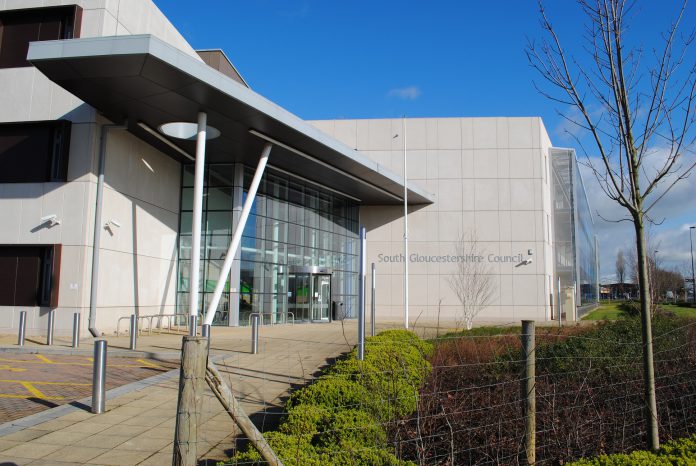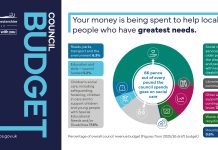South Gloucestershire Council’s Cabinet will next week consider proposals for next year’s budget that include details of ‘incredibly difficult’ decisions to reduce spending and increase charges.
The new draft budget, which will be subject to formal public consultation in the autumn, does not propose to make new savings, but does provide details of cost-cutting that was approved in the Budget in February, prior to the election earlier this year, which are now due to be implemented in the coming years.
Since that Budget was agreed, the financial situation for South Gloucestershire and other councils across England has deteriorated further, by a predicted £3 million next year (2024/25) and £2 million in 2025/26. This will place further stress on the Council’s budget and force the authority to consider additional savings if new money is not provided by Government.
The draft budget would deliver a balanced position for the coming year, thanks to the use of the Council’s remaining reserves and assuming all of the planned-for savings are made in full. Some of these, including changes to the Local Council Tax Reduction Scheme and income targets, will be the subject of the coming consultation process.
The Council is keen for residents to clearly understand the extent of the financial challenges and the measures that will need to be considered in order to balance the books.
Council Co-Leaders, Councillors Claire Young and Ian Boulton, are clear that they want the upcoming consultation to be meaningful and constructive, but agreed that the details of the pre-agreed savings and revenue-generating targets will be frustrating for many residents to hear about.
Councillor Young said: “We are going to be able to balance our budget for the coming year, but not without taking some incredibly difficult decisions that will affect much-loved and relied-upon services. We do have choices ahead, but none of them will be easy. The reality is that councils across the country are badly underfunded by central government, who seem content to pass the responsibility for increasing amounts of services onto local authorities without the money to pay for them, and to blame councils for increasing council taxes to balance the books.
“In recent years, the council has been able to do this by using its reserves and making efficiencies, but these decisions have been known about and pushed into the future. Well, the future has arrived and we are having to face up to this challenge. We want to do that together and find a path through it alongside local people.”
The Cabinet will meet on Thursday October 5 to discuss the draft budget and give the go-ahead for public consultation. That feedback will be presented to Cabinet ahead of final decisions on the Budget being made in February.
Councillor Boulton added: “Our budget situation is affected by many factors that are beyond our control, such as the state of the nation’s finances generally, inflation, and how much we receive from Government.
“Our residents need our help and support now. We need to be there for them, whether it’s providing social care for children or older people, making sure our schools provide the best possible education, or ensuring our transport system is fit for purpose. And we will be there for them, but we have no choice now but to confront the challenges head-on. The choices we make as a council in doing that will be crucial, even if they may include having to look at doing things that we don’t want to do.
“We will have to prioritise, and that’s why we want to talk to and hear from residents during the consultations to come, about how they want us to act on their behalf.
“In the meantime, we will continue to make the case to Government for significant increases to the funding they provide to councils, because the burden cannot be allowed to continue to keep falling on our residents.”
The Local Government Association (LGA) recently published an analysis which showed that councils face a funding gap of almost £3 billion nationwide, just to keep services standing still.
The council is also joining others from across the country in pressing government ministers to do more to protect the vital services that can be provided through local government. This includes ending competitive processes, cutting the strings from government initiatives, and moving to multi-year settlements to give local councils more flexibility in meeting local residents’ needs.
LGA analysis – Councils face almost £3 billion funding gap over next two years: https://www.local.gov.uk/about/news/lga-analysis-councils-face-almost-ps3-billion-funding-gap-over-next-two-years
Government figures show how baseline central funding to South Gloucestershire Council has fallen by more than 30 per cent over the past seven years (between 2016/17 and 2022/23): Settlement funding assessment calculation model: final local government finance settlement 2022 to 2023 – GOV.UK (www.gov.uk) (enter South Gloucestershire in the yellow ‘Select a local authority’ box in the downloadable spreadsheet)
These tables are sourced from LG Futures (http://lgfutures.co.uk) and show how central government funding for councils in England has fallen significantly over the past seven years; that South Gloucestershire Council continues to receive is lower than the English average of this funding; and the relative reliance on council tax receipts to fund services in South Gloucestershire.








